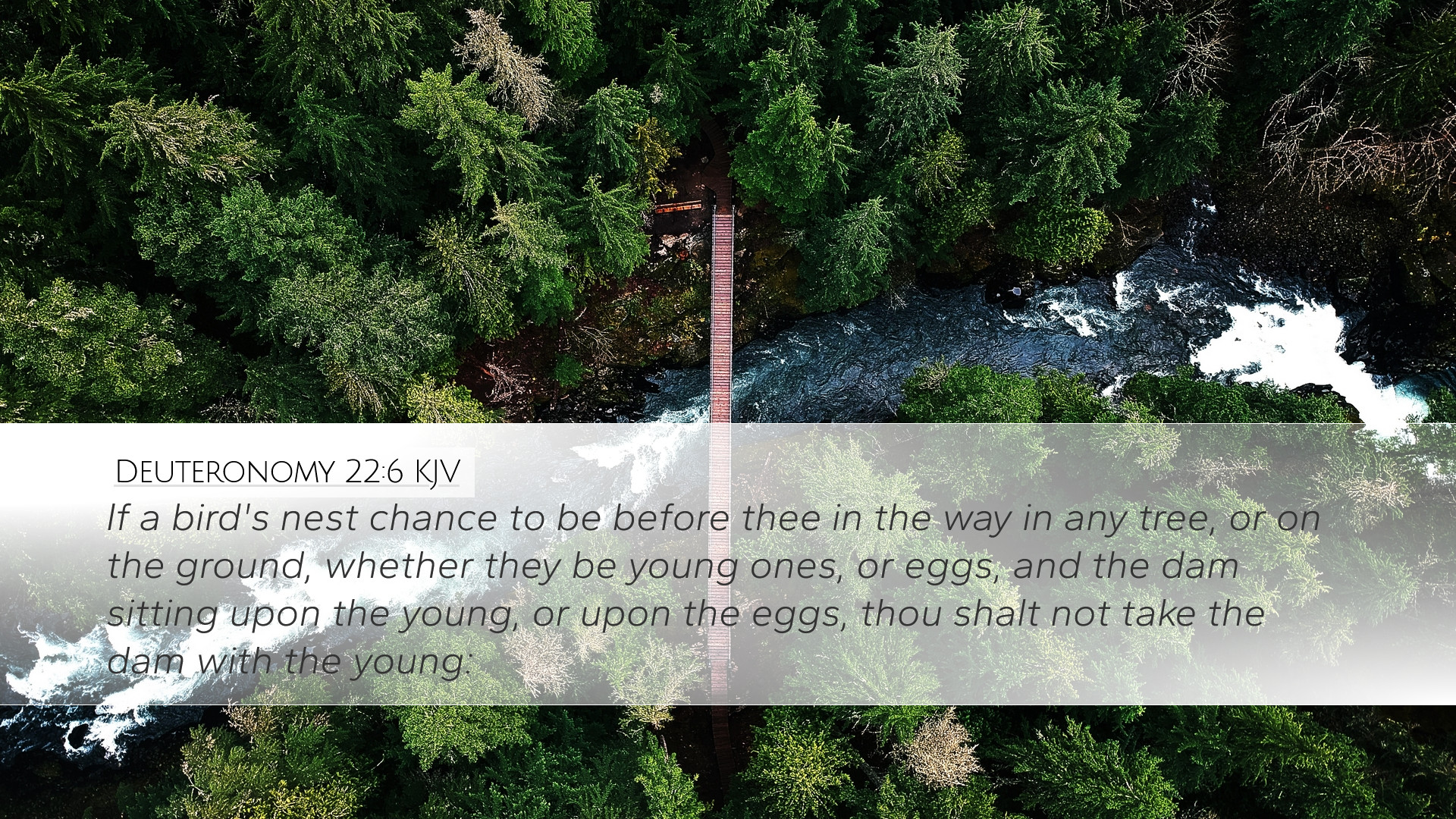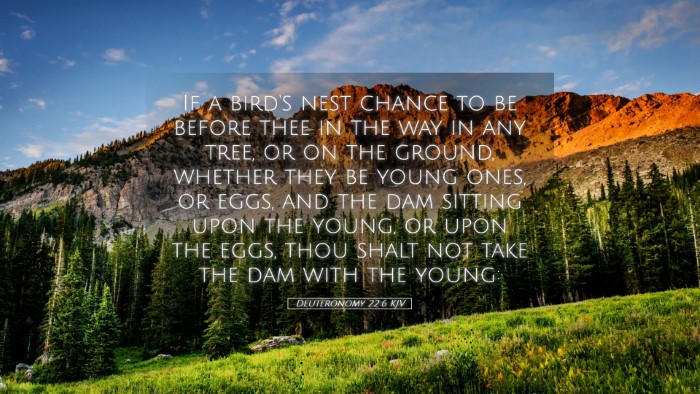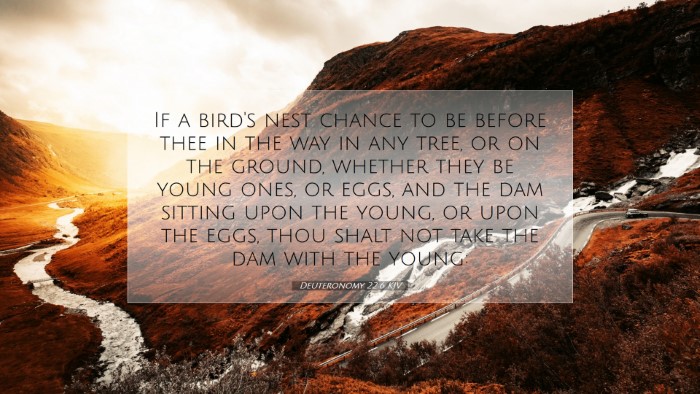Commentary on Deuteronomy 22:6
Verse: "If a bird's nest happens to be before you along the way, in any tree or on the ground, with young ones or eggs, and the mother sitting on the young or on the eggs, you shall not take the mother with the young." - Deuteronomy 22:6 (NKJV)
Introduction
In this brief yet significant verse, the Lord provides instruction regarding the treatment of birds and their young. This command not only reflects God's concern for animal welfare but also serves as a poignant reminder for believers about divine order and respect for life.
Exegesis of the Verse
Deuteronomy 22:6 belongs to a larger section that contains various laws meant to govern social and daily life in Israel. It reflects a principle of kindness and respect towards God's creation. Matthew Henry highlights this aspect by stating that the law teaches us "not to take the creature's life without necessity."
Interpretive Insights
- Protection of Life: Albert Barnes notes that the command to not take the mother bird along with her young symbolizes a broader principle concerning the sanctity of life. This reflects God’s nature as one who values the life He has created.
- Lessons on Compassion: Adam Clarke emphasizes that such laws were meant to cultivate compassion within the hearts of the Israelites. By refraining from taking the bird, they were to recognize and honor the delicate balance of life.
- Symbolic Representation: In a spiritual context, many theologians suggest that the mother bird can symbolize God’s protective nature, while the young can represent believers. The call not to take the mother with the young becomes a metaphor for God’s care for His children.
Theological Implications
This commandment points toward the broader theme of stewardship over God’s creation. While it is easy to approach this passage through the lens of humanity's dominion over animals, a careful reading reveals that dominion must always be tempered with compassion.
Stewardship and Responsibility
The Lord uses this law as a teaching moment concerning stewardship. As Adam Clarke reflects, believers are to consider their responsibilities regarding other living beings. The command ensures that humans acknowledge the rights of all creatures, evidencing a God who cares for the entire created order.
Spiritual Growth and Morality
The lesson inherent in this verse encourages a growth in morality. Matthew Henry underscores that even seemingly insignificant actions—like taking a mother bird—should be pursued with a conscience formed by scriptural principles. This reflects the requirement of a higher moral standard which governs even the smallest details of life.
Practical Application
For pastors, theologians, and students of Scripture, this text provides several avenues for practical application:
- Kindness in Leadership: Leaders are reminded to exercise kindness and responsibility in their authority. Compassion should permeate all decisions made, reflecting God’s character.
- Awareness of Creation: Recognizing the significance of creation, Christians are called to be environmentally conscious and considerate of all creatures, which can include everything from their personal lives to church-wide initiatives.
- Teaching Compassion: Biblical educators can use this passage as a cornerstone for instilling virtues of compassion and stewardship among their congregants, ensuring that moral lessons are drawn not just from humanity’s treatment of fellow humans but also towards all living beings.
Conclusion
Deuteronomy 22:6 stands as a noteworthy illustration of God's concern for the welfare of His creation. Drawing from the insights of Matthew Henry, Albert Barnes, and Adam Clarke, it becomes clear that the commandments within the law serve not only as rules to follow but also as essential guidelines that reflect the character of God. In meditation on this verse, believers are invited to ponder how their actions resonate within the greater framework of God's stewardship over the earth. Such reflections carry profound implications for individual conduct, community ethos, and broader environmental engagements within a scriptural worldview.


